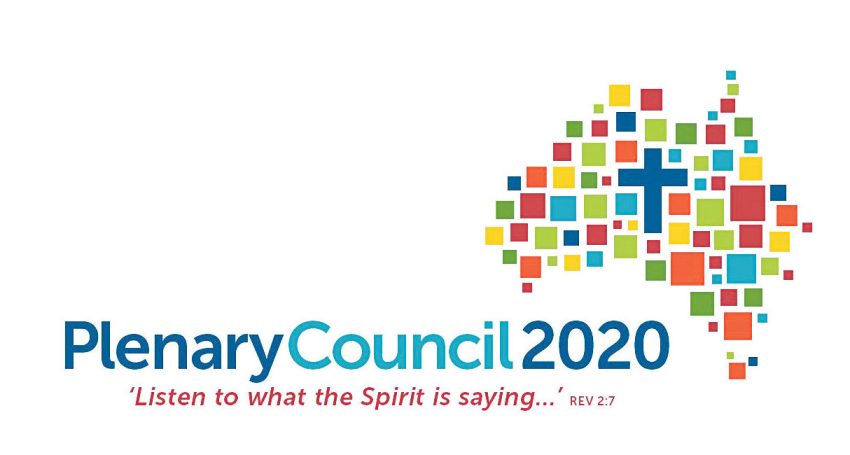Why we need a Plenary Council
News
As preparations continue for the Plenary Council 2020 – the most significant gathering of its kind in more than 80 years – Adelaide Archbishop Philip Wilson responds to some common questions about the Council and what it means for the Catholic Church in Australia.

Why a Plenary Council and not a Synod of Bishops?
The reason why we are convening a Plenary Council in 2020 to discuss the future of the Church rather than assembling a Synod of Bishops is because it gives the bishops of Australia, after consulting and engaging with their people, the opportunity to develop a pastoral vision and accompanying legislative decisions for moving into the future.
A Plenary Council is an extension of the pastoral leadership and legislative responsibilities of bishops and has an authority and way of operating that a Synod does not have.
Advertisement
Its beginnings, preparation, actions and outcomes are all part of the way bishops exercise their leadership to determine what it is that we, as a Church in Australia, want to do in order to project ourselves into the 21st century.
Where did the idea come from?
The idea of a Plenary Council came from Pope John Paul II who, in his document to celebrate the conclusion of a millennial year Novo Millennio Ineunte, made the point that it was the perfect opportunity for every church, nationally and on a diocesan level, to reflect on the faith and determine what pastoral actions to take in order to make Christ known and loved in our world today.
That is what this is all about. It is a chance for the Church to give guidance to the people, developing ideas from extensive dialogue with the people of God, reflections on the Scriptures, praying for the guidance of Jesus and then being led by the Holy Spirit to determine what is required of the Church in the future.

What could be some of the outcomes of a Plenary Council?
The Plenary Council in 2020 will be a wondrous moment of the Holy Spirit leading the Church in Australia and there might be outcomes which we have not yet dreamed of, yet I would like to think that we could develop a series of values and guidelines about the way the Catholic Church should express itself in Australia today.
Those guidelines and values could then be reflected in, and on, every pastoral activity in which we are engaged.
The plan from the Plenary Council will be universal, that is, it can have impacts for parishes, schools, social services, health and aged care services or any ministry that we are involved in that would have to be characterised by these values.
What should our position be as we prepare for the Council?
I have likened the Australian Church’s position to that of Bartimaeus, sitting blind by the side of the road as Jesus goes by. Our contemporary context necessitates deep change.
The challenge at the moment is that we, like Bartimaeus, are blind and in need of mercy, and we, like him, have to call out to Jesus and ask Him to come to our aid.
Advertisement
The words that he used: “Jesus, Son of God, have pity on me” are exactly the words that we need to use today as the centre of our prayer as we prepare for the experience of the Plenary Council together.
What happened to Bartimaeus is what we hope to achieve through our faith – that Jesus will restore us so we have vision and that Jesus will lead us so we know where we have to go and what we have to do in order to be His disciples as we follow Him in our world today. As we go about all the elements that are part of our preparation for the Plenary Council – theoretical and practical – we must ensure we keep our eyes firmly on Jesus, and ask Him to give us the insight and vision we need to be His faithful disciples.
Where will the Church in Australia be after the Plenary Council?
We cannot be entirely sure, because if we are open to the power of the Holy Spirit and open to Jesus then we cannot predetermine the responses and answers we will find.
All we can do is be open to Him, ask Him to inspire us through the power of the Holy Spirit, and then be open to the consequences. One thing is for sure: the very centre of this experience will have to be renewal, and the very centre of renewal is conversion.
Conversion is the big challenge that was laid at the Church’s door by the Second Vatican Council, and in many ways since the Council ended in 1965, we as a community have avoided the consequences of that.
Conversion is not only communal but personal; in fact, it will only work communally if all of us are personally willing to allow the power of the Gospel to change them in their lives.
As we prepare for the Plenary Council we need to pray sincerely to deepen our relationship with Jesus and ask Him to help us to be prepared to do what is necessary to give life to the Council and to our Church in the future.











Comments
Show comments Hide comments